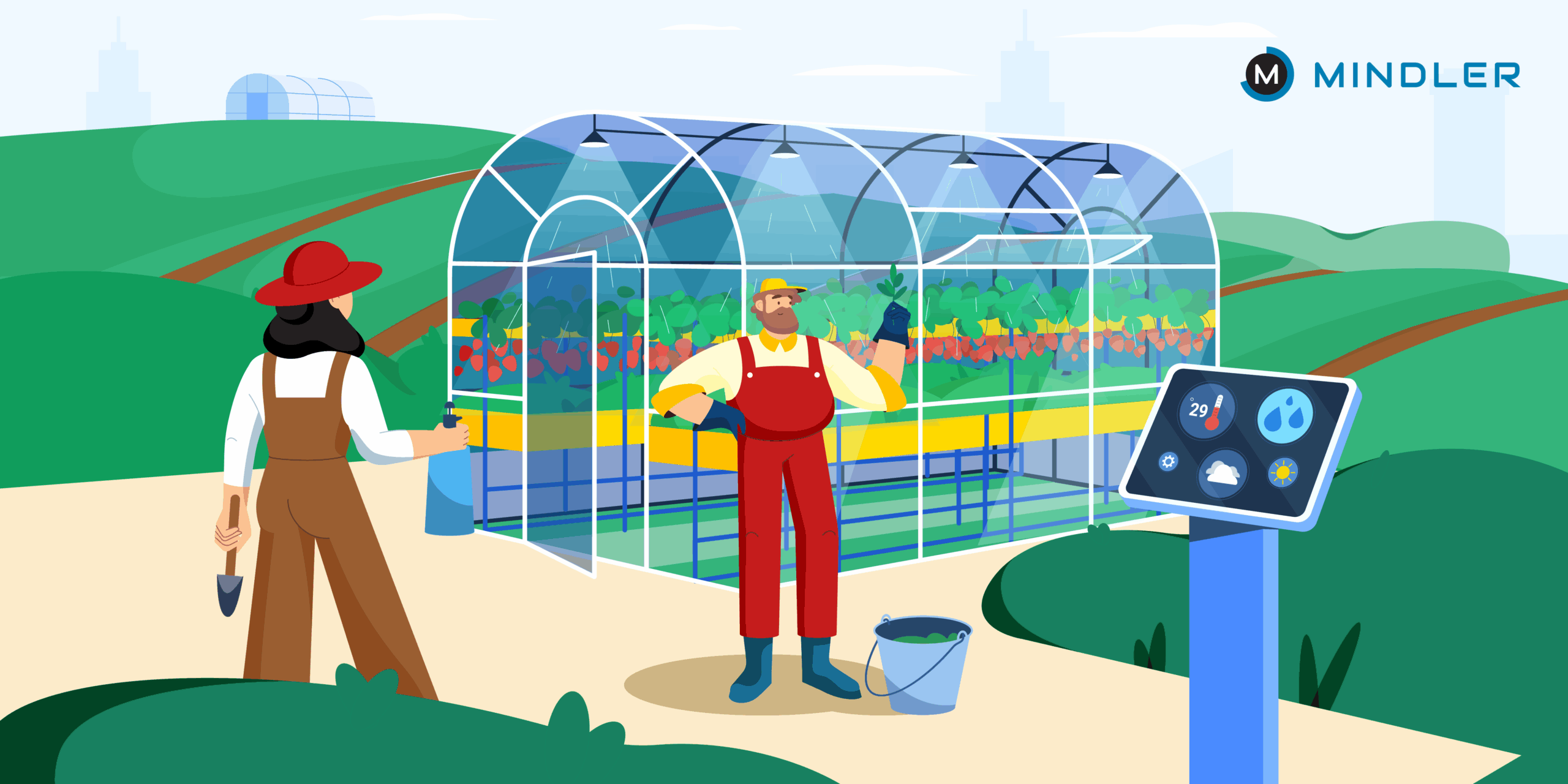
Agriculture Startups & Urban Organic Farming in India
Agriculture in India is changing rapidly due to technology integration and government initiatives. By the middle of 2025, there were almost 1,934 agriculture tech startups in India’s states and union territories, working on making the industry more scalable. These new ideas show that entrepreneurs can come up with new ways to innovate, grow, and lead the future of farming in India. The combination of modern agricultural startups and urban organic farming opens prospects for modern agriculture.
What is the Difference Between Modern Farming and Traditional Farming?
The changes in modern and traditional farming are largely characterized by the use of advanced technology, science, and mechanization to boost productivity and efficiency:
- In conventional agriculture, people are relying on manual labor, natural farming, and centuries-old experience to keep agriculture going. Contemporary agriculture presupposes the use of tractors, irrigation, high-yielding seeds, chemical fertilizers, and pesticides to maximize the use of agriculture.
- Furthermore, in order to maximize resources and reduce losses, contemporary farming tends to involve utilizing data-driven methods, crop rotation planning, and precision agriculture, yet traditional farming relies on using sustainable practices that are grounded in the local ecology.
Generally, modern agriculture is aimed at efficiency and mass production, whereas traditional agriculture is aimed at simplicity, sustainability, and a localized approach. The future predicts the use of weather information and soil analytics to make decisions that benefit the planet, which is generating new data science agriculture careers.
The Rise of Urban Organic Farming in India
To know what are modern agriculture techniques involve learning how to grow all produce free of pesticides in urban localities. Urban farming businesses have a market opportunity because there is an increase in the consumption of organic food in cities like Bengaluru and Mumbai. The new practices of agriculture adopted in the urban regions include:
- Hydroponic Systems: Non-soil farming by using nutrient-rich water solutions in the liquid state makes it possible to produce and harvest all year round. The controlled footprints have herbs and leafy greens that are grown using water-saving methods.
- Vertical Farming Infrastructure: Multi-layer growing systems are the ones that optimise space utilization in cities. These systems produce higher per square foot than horizontal farming.
- Aquaponics Integration: Aquaponics Integration entails the production of closed-loop ecosystems through the integration of fish and plants. Fish wastes are used as a source of nutrients, and plants purify the fish water.
- Rooftop Farm Development: It involves the transformation of empty rooftop spaces in cities into farmlands. Some cities, such as Chennai, have municipal policies that encourage rooftop farming projects.
- Models of Community-Supported Agriculture: The direct relationships between the consumer and the farmer through weekly subscriptions of organic foods. These ensure security for farmers and the availability of fresh food.
Notable Agriculture Tech Startups Leading Innovation
The technology in the Indian agricultural sector has attracted formidable investment, with startups resolving issues of the farming value chain. Firms changing Indian agriculture to include:
- DeHaat: Provides a wide range of consultations with farmers and the supply of high-quality inputs. Through the site, AI-based crop advisory is made available to farmers across different states.
- Ninjacart: It is a technology-based fresh supply chain of producing that connects farmers and retailers. The site deals with huge volumes of fresh produce.
- CropIn: CropIn offers farm management and predictive analytics services using satellite data. The use of machine learning algorithms optimizes the production of the crops of large farmlands worldwide.
- AgroStar: An e-commerce platform dedicated to agriculture and able to link farmers to the relevant farming products and advice. Advisory services are given to registered farmers through mobile applications.
- BigHaat: An online farming input market of farming inputs, including seed and fertilisers. The platform aligns the input supply and advisory and crop protection solutions.
It is through these businesses that agricultural practices are scaled with technology platforms. They reach the rural markets that are underserved and increase the income of farmers.
Career Opportunities in Agricultural Technology
Some of the opportunities in agricultural technology are:
- Agricultural Data Scientists: They use satellite and weather data to get the best yield. You need to know about both machine learning and farming for these jobs.
- Farm Technology Specialists: They set up and fix precision farming machines like drones and sensors. To do these jobs, you need to know a lot about farming and have some technical skills.
- Digital Agriculture Consultants: Agricultural technicians use data analytics to give advice on digital platforms. The consultants help farmers pick the right crops and make the best use of their resources.
- Supply Chain Managers: Make sure that farm goods are bought and delivered. These tasks keep the system running smoothly and make sure that deliveries are of good quality.
- Agricultural Financial Analysts: They help farmers by making credit score models and insurance policies. Financial services are aimed at agricultural businesses that work with smallholder farmers.
Increasing consumer preference is reflected in the increasing number of natural farming jobs. Sustainable and organic agricultural goods open up certification and consulting business.
Starting an Agriculture Business in India
The ability to be familiar with the legislative frameworks and market dynamics is needed in order to develop a successful agricultural business. The Government of India initiative under the Startup India initiative provides registration benefits. The most essential steps in the development of an organic farming startup are:
- Market research and validation markets: Conduct a thorough research of target crops and consumer demand. The farming activities in the area assist in the identification of business opportunities that are exploitable.
- Technology stack choice: Choose the appropriate technology in agriculture on the basis of crop requirements. The choice of selection depends on the technical literacy of the farmer and the availability of infrastructure.
- Regulatory compliance: Obtain necessary licenses, e.g., agricultural marketing licenses. Indian organics and environmental certification are needed.
- Funding strategy development: Tap the government programs like the Agriculture Infrastructure Fund. Venture capital supports agri-tech initiatives, and impact investors do agri-tech initiatives.
- Partnership network building: Establish collaborations with research/universities of agriculture. Farmer-producer organisations ensure technological assistance and market availability.
Excellent business models of agriculture integrate numerous sources of income, such as product sales. Financial sustainability is attained by technology service and data monetisation.
Government Support and Policy Framework
There are vast policies by the Government of India aimed at promoting startups in the agricultural sector. There are a number of programs that promote the application of agricultural innovation and technology:
- PM-Kisan Sampada Yojana: It provides food processing plants and storage facilities with financial support. Subsidies are also used to finance farm infrastructure development projects.
- National Agriculture Market (eNAM): This trading site is an online site that offers a connection to agricultural markets across India. Startups are able to access larger market networks and transparency.
- Agriculture Infrastructure Fund: This is a large sum of money in the form of loans with subsidised interest rates. Processing and storage plants are part of agricultural infrastructure development.
- Digital Agriculture Mission: Promotes technology utilization based on pilot projects and databases of farmers. Digital service delivery mechanisms are associated with agricultural modernisation.
These types of policy frameworks allow the creation of enabling environments in which agriculture-related startups design solutions. Market opportunities and financial support give the much-needed regulatory clarity.
Conclusion
Agriculture is undergoing tremendous changes in startup projects in agriculture and urban organic farming. Technology integration and sustainable practices are inspirational to innovative models of business. Favorable governmental conditions and consumer demand present new business opportunities like never before. Start-up innovation and modern farming methods deal with serious issues effectively. Precision farming transforms the agricultural technology ecosystem and allows entrepreneurship to be innovative and helpful to the farming communities.
Want to learn more about careers in agricultural technology and start-ups? Explore Mindler’s career assessment tools to see how your skills and interests align with this field.
Frequently Asked Questions
- Which Indian cities are best for starting an urban organic farm?
Strong urban organic farming markets are available in Mumbai, Bengaluru, Delhi NCR, Pune and Hyderabad. Business can be developed with the support of high consumer awareness and developed distribution networks. Hydroponic equipment and expertise are more readily available in these cities.
- Are there government schemes supporting agriculture startups in India?
The Government has a number of support mechanisms, like the Agriculture Infrastructure Fund. PM-FME provides capital subsidy to food processing units in the country. Patent processing and tax exemption are available under the National Startup India.
- What are popular crops for urban organic farming in India?
Crops of high value are grown in urban markets, like the leafy greens, which include spinach and lettuce. The demand for herbs like basil and mint is stable. Other lucrative products are strawberries, microgreens, and cherry tomatoes.
- Can modern agriculture startups in India get venture capital funding?
Indian agri-tech startups were also able to raise huge amounts of venture capital with the involvement of major investors. Active investors are Accel Partners, Sequoia Capital India, and Omnivore Partners. Scalable technology solutions and obvious revenue models are financed.
- What skills are most needed for agri-tech jobs in India?
The new skills with high demand include data science and machine learning in order to meet the agricultural demands. The analogue technology of precision farming and the services of agricultural extensions also come in handy. Supply chain management and sustainable farming certification are the creators of opportunities.


